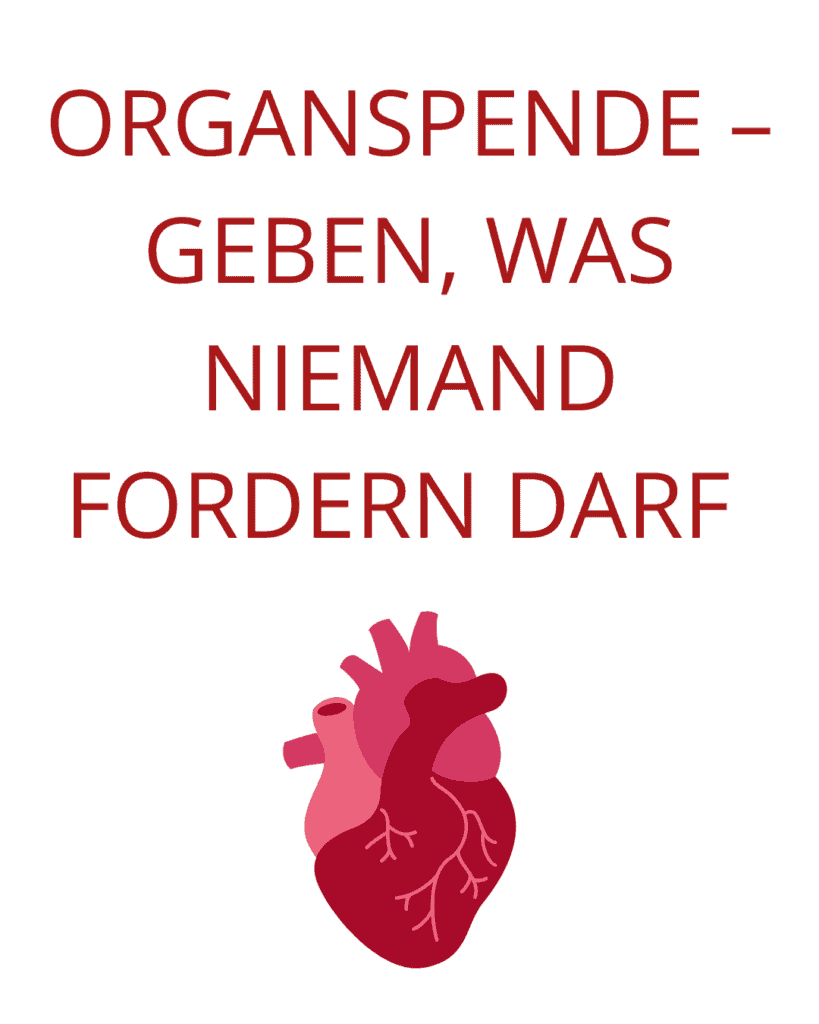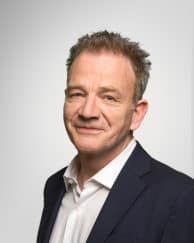Prof. Dr. Frank Mathwig, ethicist and theologian, contributed to a consultation response on the partial revision of the Transplantation Ordinance on behalf of the Swiss Protestant Reformed Church. In this interview, he sheds light on the church's position, the challenges involved in weighing up ethical principles and the role of the church in the public debate.
Organ transplantation is a topic that raises ethical, medical and theological questions. On May 1, 2024, the Federal Council opened the consultation on a partial revision of the Transplantation Ordinance. These amendments are necessary in order to implement the introduction of the extended objection regulation in the area of organ, tissue and cell donation.
The Swiss electorate had already approved the introduction of this regulation on May 15, 2022. It stipulates that every person is automatically considered an organ donor unless they or their trusted person or relatives expressly object. The proposed amendments to the ordinance specify the implementation of this regulation and are intended to ensure that it can be introduced smoothly in practice.
How does the Reformed Church deal with the difficult issues surrounding organ transplants? What ethical considerations are paramount and how is human dignity preserved?
In an enormously efficient healthcare system, transplant medicine occupies a special position: In post-mortem organ donation, the life of a person with a life-threatening illness is saved by transplanting the organs of a "deceased" person. The donor does not die because of or as a result of the organ donation, but their (brain) death is the prerequisite for a donation that enables the recipient to live a life with a new quality of life and perspective. There are only three constellations in which life and death come so close together: the tragic death of the mother or her child during pregnancy or childbirth; the sacrifice, in which a person gives their life for the life of another person, and the donation, in which a person gives their organs in the event of their (brain) death so that another person can live. Despite the enormous differences, these are fateful and existential borderline situations that exceed all possibilities of rational consideration, classification and processing. And they are events in which the boundaries and distinctions between people and their fates become blurred. No special religious or metaphysical talent is required to sense a humanity that defies purely cognitive and scientific descriptions. This is where what is still and essentially part of life comes to the fore, and this is something that concerns the core of the proclamation and mission of the Church.
The influence of the church on the formation of public opinion should sensitize people to the sensitivity of the topic. As vague as this sounds, the concern is clear: the consistent rejection of the double moralization of life. One moralization of life consists of morally exalting the biological body and declaring it sacrosanct. The other moralization of life consists in making the biological body the object of a moral duty or a moral barter.
The Swiss Protestant Reformed Church has always taken a clear position in the political debates on organ donation. The tenor of all statements is: Yes, to organ donation - no to an automatic donation system that subordinates dignity, which is expressed in the physical integrity of the person that is absolutely worthy of protection and does not end with death, to a technical end-means approach. Of course, there is no academic bioethics in the Bible. But it does offer exciting perspectives on a view of humanity that is both saturated with experience and reflected in a differentiated way. The biblical and Christian traditions set no limits to human devotion to our fellow human beings, provided it is not based on selfish motives and external coercion. Both the gift of one's own body and its protection take place in obedience to God, who is known as the Creator, Preserver and Finisher of all life. Both the self-donation of one's own body and the refusal to donate organs can express respect for the gift of one's own life in the same way.
Legal ordinances are generally very technical, dry texts that regulate the practical implementation of a law. The EKS Council's consultation response focuses on three aspects: 1. the procedure for determining a possible contradiction in the medical transplantation process, which is characterized by high time pressure. The Council points to problematic inconsistencies between the ordinance and the applicable medical-ethical guidelines. 2. in the Council's view, the provisions on the medical preparatory measures for organ removal are also in need of revision. They are not part of the medical treatment or care of the dying person and are therefore only permitted if it has been clarified that there is no objection from the person, a trusted person or relatives. 3. the regulation on the social establishment, communication, determination and organization of the objection solution is non-transparent, disproportionate and unclear in terms of responsibilities. As an example of this, the draft ordinance puts two new hats on Swisstransplant. In addition to its existing tasks, the organization will now contre cœur also be responsible for ensuring that every person is informed of their option to object and is enabled to actually make use of it. Swisstransplant is currently responsible for organ distribution, acts as an advocate for seriously ill people who urgently need an organ donation and is committed to increasing the willingness to donate in society. This indispensable work should not be burdened or jeopardized by additional tasks that are clearly part of the state's remit.
Organ donation is a matter of supererogatory duties, i.e. moral demands that cannot be made generally binding, but which a person can only demand of themselves. On the other hand, there is a strong obligation towards the autonomy of the person and respect for their freedom of choice. Finally, the principle of justice in organ allocation is of paramount importance. Trading in and buying organs is just as much a crime as circumventing and manipulating waiting lists and distribution procedures. The general principles and duties converge with a Protestant view of humanity that focuses on the dignity and irrepresentability of the person.
The fundamental problem with the objection solution is that it collides with the construction of the protection of personality rights in liberal constitutional states. The connection between the "strength of the people" and the "welfare of the weak" formulated in the Preamble to the Constitution is expressed in the fact that every person knows that their fundamental and personal rights are protected - regardless of whether or not they can stand up for them. With the objection solution, the protection of physical integrity, which does not end with the death of the person, is no longer guaranteed "by itself", but must be actively asserted by the person through their objection. Strictly speaking, such an imposition is alien to liberal citizens with regard to the protection of their fundamental rights. In essence, it completely contradicts their logic of trust.
In late-liberal society, churches have a reputation as traditional moral agencies. Regardless of whether this assessment is correct (at least in general terms), churches and their theologies have at least an equally established and elaborate moral critique. In my view, an important task of the churches in the public debate is the ethical deconstruction of both a moral denunciation and a moral sacralization of organ donation. This is followed by a second important ecclesiastical topic: thinking about the gift, in the form of a differentiated reflection on what people demand from each other, what people wish from others and what people can only be given by others. Individualistic contractual thinking has long since lost sight of these distinctions, which are indispensable for understanding sociality.
I wish for attention to be paid to terminally ill people who urgently need an organ and make me stumble over my question of whether my organs could be meant. And I wish for respect for each person's freedom of interpretation with regard to what the protection of bodily integrity guaranteed by human and constitutional law means for them.
Links to:


Multilingual WordPress with WPML